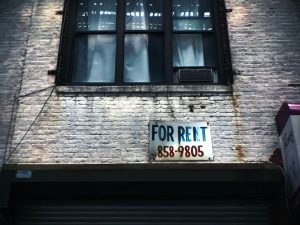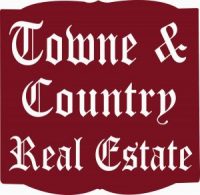How to Easily and Accurately Keep Track of Your Rental Properties

If you’re a real estate investor, you know how challenging it can be to keep track of your portfolio. There are the properties to upkeep, accounts to check, and expenses to track. It can be tempting to let the administrative tasks fall behind, as filing receipts and tracking expenses is certainly no glamorous task. But accurate rental tracking is a must to manage your portfolio like a well-oiled machine.
Want to learn how? Towne and Country Real Estate breaks it down.
Write Your Records
Having supporting documents for your property is critical for many reasons. Getting a high-value appraisal becomes more accessible, as does selling or leasing the property. The primary records you need to maintain are:
- A record of income and expense: This usually takes the form of a profit and loss statement and is helpful in tracking money coming in and going out to arrive at the net worth.
- Backup documents: You’ll also need supporting documents for your expense and income claims. This could be bank statements, receipts, bills, and more.
You may find yourself asking – just two kinds of documents? That’s easy! In actuality, these documents can be challenging to keep up with, especially if you’re renovating or incurring additional expenses that need tracking.
Time to Track
Bookkeeping is essential to this trade. To maximize your performance, you’ll want to ensure that you have a close eye on the ins and outs of expenses. One of our most important tips is to separate business finances from your own. This will ensure your costs aren’t confusing you down the line. You can also get more detailed and set up different accounts for each rental property. Thus, you’ll be able to keep the P&L statements separate, which will make it easier to file taxes. This tip also helps identify problem properties that may not be carrying their weight, allowing you to diversify your portfolio.
Don’t forget to set up your business structure to protect you and your properties from litigation. The best way to do this is through a limited liability company or LLC for your investment business. Keep in mind that using a formation service to form your LLC is significantly cheaper than hiring a lawyer, and click here for help filing the annual report required for most LLCs.
Supplement With Software
Once you have a basic idea of how to keep things running smoothly, you’ll be able to implement the use of software too. The whole idea here is, work smarter, not harder. Using technology helps automate tasks that take you lots of time and effort, not to mention, it’s easier to reference past items without keeping a physical backlog. Here are some of our favorite rental expense tracking resources:
- Landlord Studio: This app is designed to let you track rent payments and deposits, screen tenants, set reminders, and organize finances for tax time.
- Personal Capital: Another great one, this app manages the cash flow by tracking incoming and outgoing expenses and net worth. Bonus: it is integrated with Zillow for a more synchronous experience.
- Rentec Direct: This web-based tool helps with accounting, maintenance, records, and tenant management. Its ledger tool also lets you calculate future expected finances with ease.
Are you looking for a more basic system? This Excel spreadsheet from Zillow has come in super handy for many landlords and investors.
Dropping the ball in expense tracking can have serious consequences. You could lose income, clients, and worst of all – you won’t see any of it coming. We hope these tips make you breeze through your property expense management. Happy tracking!
Looking to buy or sell? Reach out to the Towne and Country Real Estate for all your real estate needs. Knowledgeable, trustworthy, and efficient, the Towne and Country team works overtime to ensure your property goals become a reality. Reach out at 412-487-5010 today!
